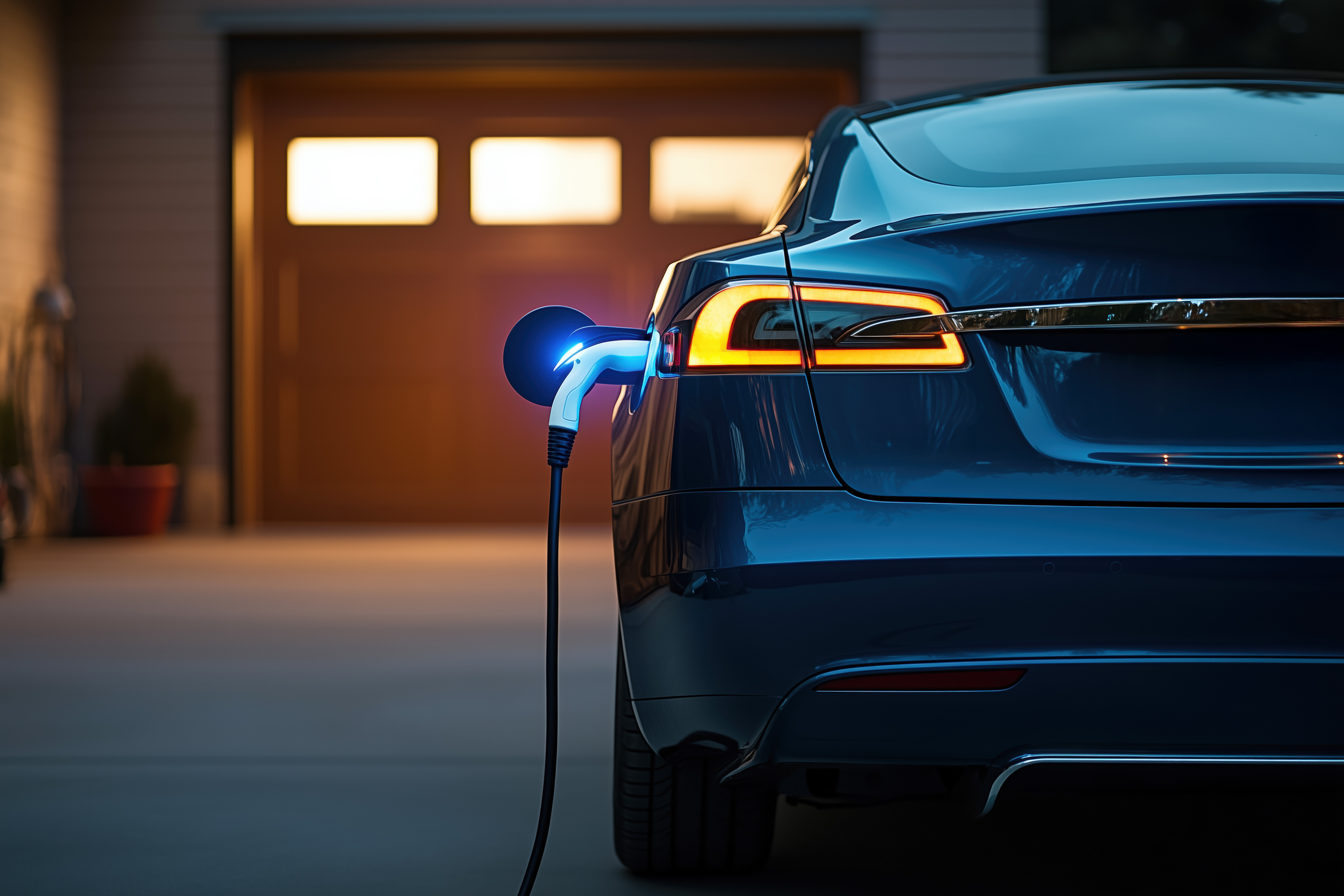If you’re thinking about investing in an electric vehicle (EV), you may have questions about electric car charging time. Knowing the average charging times for some of the most popular electric vehicles (EVs) can help you decide which one you want to purchase.
To help you better understand the average time to charge an electric car, we’ve put together this guide to charging an EV and the factors that affect charging speed.
How long does it take to charge an electric car?
The amount of time to charge an electric car varies widely. Depending on the size of the battery and the speed of the charging point, EV owners may enjoy a quick charge time or a long wait.
The most common battery in electric cars is 75 kilowatt hours (kWh) and takes about eight hours to charge fully from empty with a 7kW charging point. However, most EV drivers “top up” their batteries when they start to get low, rather than charge from a dead battery.
In general, the larger your car’s battery, the longer it will take to charge, but a faster charging point can help speed up electric car charging times.
What is the fastest charging electric car?
Unfortunately, there isn’t a clear answer to this question. Each electric car comes with a different size battery, and even the same model, like the Tesla Model S, can be available with a variety of different battery packs, measuring anywhere from 60 to 100 kWh, so even a definite Tesla charging time is hard to pin down.
However, there are a few electric vehicles that boast some of the fastest charging speeds under the best conditions:
- The Lucid Air is a relatively new EV that can charge as much as 20 miles per minute.
- The Porsche Taycan is a luxury electric car that can charge 15.5 miles per minute.
- The Tesla Model 3 is currently the best-selling electric car in the U.S. and boasts a charge rate of 15 miles per minute with a rapid charge.
- The Kia EV6 is just behind the Tesla Model 3 at 14.5 miles per minute.
- The Hyundai Ioniq 5 can charge 13.4 miles per minute.
Most electric cars take around eight hours to charge from empty to full, which is why many owners install home charging stations.
What types of charging are available for electric cars?
Every electric car sold in the U.S. today comes with a Level 1 charger, which uses a standard 110-volt outlet like you would find in your home. It often takes all night to charge an EV with a Level 1 charger.
Many drivers, though, choose to upgrade to a Level 2 charger, which uses a 240-volt outlet like the one you probably plug your clothes dryer into. A Level 2 charger could cut your charge time for electric cars in half.
There are also Level 3 chargers, which use direct current (DC) and charge electric cars rapidly, but not every vehicle can handle this level of charge.
{{CTA-EV}}
How much range can you get per hour of charging an electric car?
The difference between gas and electric vehicles is that driving an EV requires a little more thinking ahead. When planning a trip in an electric car, it’s important to know how far you can go on a charge so you can plan when you need to stop to recharge. Each level of electric car charging can provide your EV with a different range in a single hour.
The slowest charging speed (Level 1) can add up to 5 miles in an hour of charging. Level 2 charging, which you will most often encounter at public charging stations, can add 14 to 35 miles in an hour of charging.
Finally, 43 to 50 kW rapid charging can add up to 90 miles in just 30 minutes, while 150 kW rapid charging can add up to 200 miles in 30 minutes. But your electric vehicle must be able to handle rapid charging to use this speed. (More on this below).
What factors affect electric car charging times?
In addition to the size of the battery and the rate of the charging point, there are several other factors that can impact how long it takes to charge an electric vehicle.
If you’re charging from empty, it will obviously take you longer to reach a full charge than if you’re starting from 50%. This is why many drivers keep their electric vehicles between 20% and 80% and simply “top off” before a trip.
Another factor that impacts your charging speed is the maximum charging rate of the vehicle. Not every electric car can handle rapid charging. Your EV can only charge as fast as its maximum charge rate. The same is true of charging points as well. You can’t enjoy rapid charging at a station that is limited to fast charging.
The weather can also have an effect on charging speed. A colder temperature can cause an EV to take longer to charge and can make the vehicle a little less efficient. This is because the heater and other components that keep the car warm can zap the battery’s energy more quickly.
The age of your battery can also impact charging time. Older batteries may take longer to charge than newer ones. How long an EV battery will last varies depending on the model, but electric car batteries can last for 10 to 20 years on average.
Gexa Energy offers plans for your electric car that allow you to save on EV energy charges during off-peak hours, while simultaneously limiting your environmental footprint and making your world a little greener and cleaner.
{{CTA-Solar-to-EV}}






































